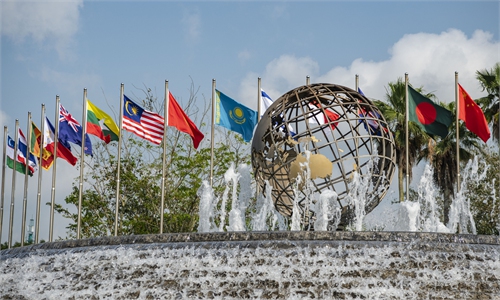Authorities on standby, public urged to stay alert as inter-monsoon period begins
PETALING JAYA: As Malaysia enters the inter-monsoon period, authorities have advised the public to take the necessary precautions to stay safe.
Amid occurrences of heavy rain and strong winds, Fire and Rescue Department director-general Datuk Nor Hisham Mohammad said the public has to be fully alert to changes in the weather.
“Avoid being near water bodies for the time being,” he said, adding that the inter-monsoon period could cause water surges.
ALSO READ: From heatwave to wet days – but El Nino effects to stay longer
“The strong winds and rainfall from the inter-monsoon can also cause tree branches to break; hence, the public should avoid being in areas or park their vehicles where there are trees with high-canopy loads, such as raintrees,” he said when contacted.
Nor Hisham added that instructions have been issued for his department’s officers to patrol recreational areas, especially those near water bodies.
On preparations for the coming Hari Raya celebrations, he said the department will be on standby with the police at locations across the North-South Expressway, East Coast Expressway Phase 1 (LPT 1), and East Coast Expressway Phase 2 (LPT 2).
He added that 30% of the department staff’s leave has been frozen.
ALSO READ: Long wait for rain finally ends
Civil Defence Force (APM) Assistant Commissioner (PA) Sharudin Md Zain said all APM operation centres nationwide have been on standby since March 29, when the inter-monsoon began.
He said some 154 cases of fallen trees were recorded from March 29-31.
This marked a more than threefold increase in the number of cases compared with the same period last year, said Sharudin.
“This stark increase is due to the heavy rain and strong winds that occur in the later parts of the day,” he said, adding that 874 snakes were also caught between March 29 and March 31.
ALSO READ: Throwing ‘shade’ on UV levels
Sharudin, who is the APM disaster management and operations director, also advised the public to take the necessary precautions before carrying out outdoor recreational activities.
“Plan for the location and prepare an emergency kit. Always monitor the situation there and inform the nearest police station of your route and activities planned.
“Check the trees when you are having outdoor activities, and make sure the grounds don’t show signs of erosion.
ALSO READ: Uptick in heat stroke, UV and other weather dangers
“Also take note that your camping site may be a habitat for wild animals,” he said, adding that the public should call 999 in case of emergencies.
The Malaysian Meteorological Department (MetMalaysia) said heavy rainfall and strong winds can potentially occur during the inter-monsoon period, especially during later parts of the day.
“These weather conditions have the potential to cause thunderstorms, uproot trees and cause structural damage,” it said in a statement.
Malaysia’s transition to the inter-monsoon period marked the end of the northeast monsoon, which began on Nov 11 last year.

















